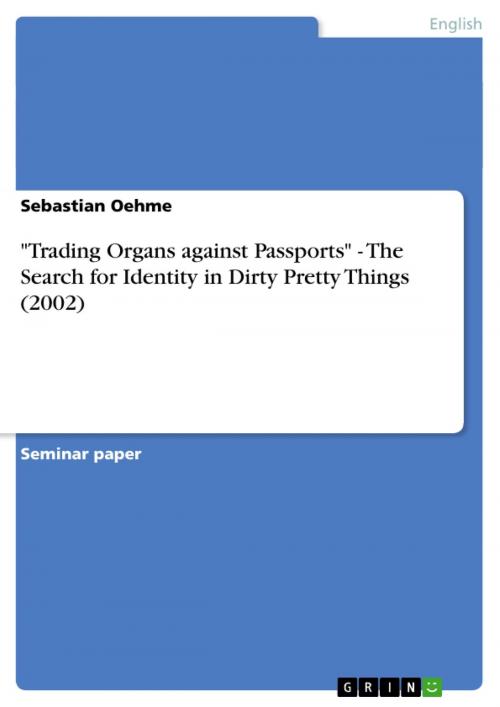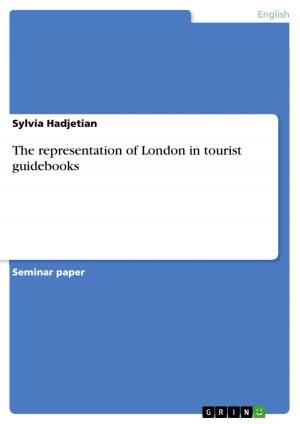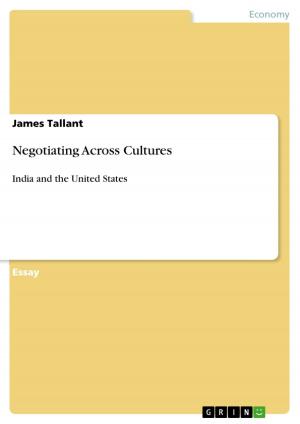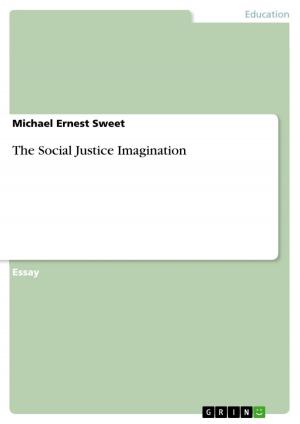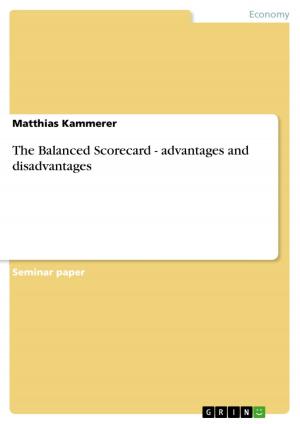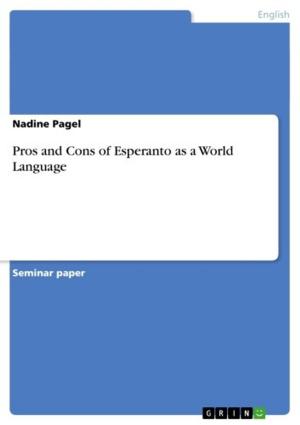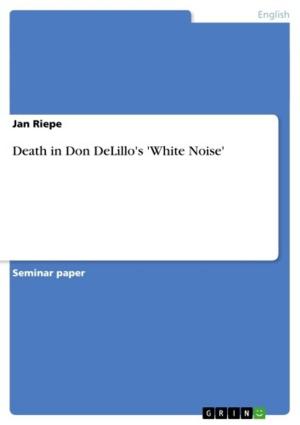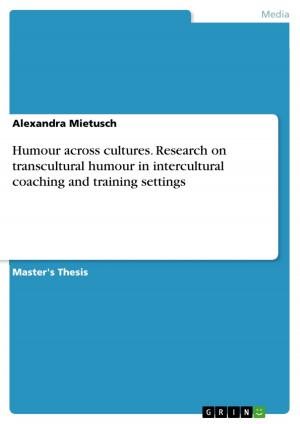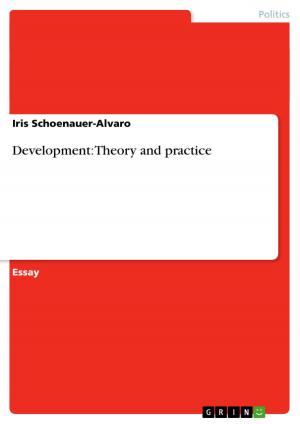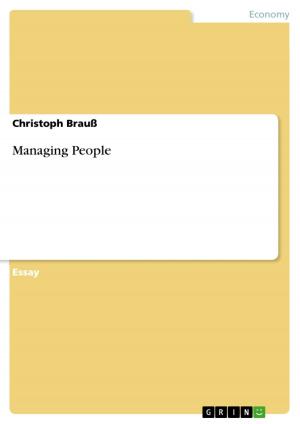'Trading Organs against Passports' - The Search for Identity in Dirty Pretty Things (2002)
The Search for Identity in Dirty Pretty Things (2002)
Fiction & Literature, Literary Theory & Criticism, British| Author: | Sebastian Oehme | ISBN: | 9783640602834 |
| Publisher: | GRIN Publishing | Publication: | April 23, 2010 |
| Imprint: | GRIN Publishing | Language: | English |
| Author: | Sebastian Oehme |
| ISBN: | 9783640602834 |
| Publisher: | GRIN Publishing |
| Publication: | April 23, 2010 |
| Imprint: | GRIN Publishing |
| Language: | English |
Seminar paper from the year 2008 in the subject English Language and Literature Studies - Literature, grade: 1,0, Technical University of Chemnitz (Anglistik / Amerikanistik), course: Hauptseminar: Postcolonialism in the Metropolis, language: English, abstract: The 20th century is often referred to as the century of rising cities and of an urbanisation of society due to factors like the Industrialisation, which had a tremendous influence on society. In the beginning 21st century, those developments have even gained in speed and dimension, while further impacts and consequences of this process can only vaguely be anticipated. Moreover, the term 'globalisation' can literally be found at every corner. As a result of this long-lasting trend, huge metropolises have been constructed all over the globe. One of them, namely London, will be in the centre of this term paper. Yet, the focus will lie more on some individuals than on the great mass of people living in such a city, as I will examine the portrayal of the main protagonists of the movie titled Dirty Pretty Things (2002), directed by Stephen Frears. I am going to analyse the movie, which must be seen just like any other literary genre, with the focus on its content. The drama Dirty Pretty Things portraits the faith of undocumented - and hence illegal - immigrants to Great Britain and their gloomy everyday-life with an ever insecure future of being allowed to stay in their chosen residence or not. Always hiding and being forced to adapt to other lifestyles with different customs, traditions, or a different language - or generally speaking, another culture - their identity is put into question. Being deeply despaired and seeing no other chances for an improved life, some even risk to sacrifice a kidney for the opportunity of a passport, which is the main issue of Dirty Pretty Things. Can the protagonists Okwe and Senay cope with those difficult circumstances? And how does their identity develop in such an environment of exploitation and assimilation? Can they maintain their cultural roots and form a diaspora, or will they break to pieces under the immense pressure surrounding them?
Seminar paper from the year 2008 in the subject English Language and Literature Studies - Literature, grade: 1,0, Technical University of Chemnitz (Anglistik / Amerikanistik), course: Hauptseminar: Postcolonialism in the Metropolis, language: English, abstract: The 20th century is often referred to as the century of rising cities and of an urbanisation of society due to factors like the Industrialisation, which had a tremendous influence on society. In the beginning 21st century, those developments have even gained in speed and dimension, while further impacts and consequences of this process can only vaguely be anticipated. Moreover, the term 'globalisation' can literally be found at every corner. As a result of this long-lasting trend, huge metropolises have been constructed all over the globe. One of them, namely London, will be in the centre of this term paper. Yet, the focus will lie more on some individuals than on the great mass of people living in such a city, as I will examine the portrayal of the main protagonists of the movie titled Dirty Pretty Things (2002), directed by Stephen Frears. I am going to analyse the movie, which must be seen just like any other literary genre, with the focus on its content. The drama Dirty Pretty Things portraits the faith of undocumented - and hence illegal - immigrants to Great Britain and their gloomy everyday-life with an ever insecure future of being allowed to stay in their chosen residence or not. Always hiding and being forced to adapt to other lifestyles with different customs, traditions, or a different language - or generally speaking, another culture - their identity is put into question. Being deeply despaired and seeing no other chances for an improved life, some even risk to sacrifice a kidney for the opportunity of a passport, which is the main issue of Dirty Pretty Things. Can the protagonists Okwe and Senay cope with those difficult circumstances? And how does their identity develop in such an environment of exploitation and assimilation? Can they maintain their cultural roots and form a diaspora, or will they break to pieces under the immense pressure surrounding them?
